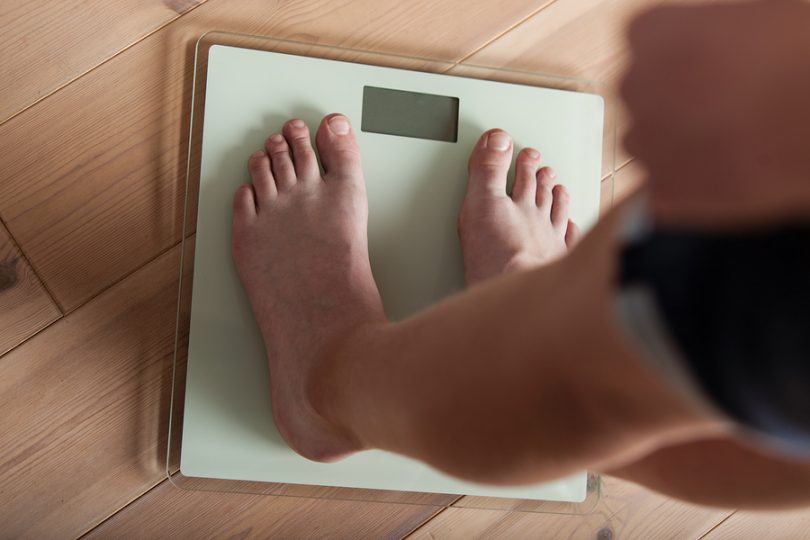It’s a question very few parents would have asked even two decades ago. But with one in every six school-age children—those ages 6 to 19—now classified as clinically obese, it’s a question more and more parents are considering: Does my teenager need weight loss surgery?
Obesity in kids has increased significantly over the past few decades, and now adult diseases like high blood pressure, heart disease and Type II diabetes are being diagnosed in both children and teens more than ever before. For teens who are overweight, surgery is becoming a more common option.
“The biggest hurdle,” said Dr. Renee Hilton, a bariatric surgeon and director of the Augusta University Health Center for Obesity & Metabolism, “is that people find it difficult to accept the idea that a child—someone under the age of 18—is a candidate for weight loss surgery. But recent studies—the Teen-LABS study being the most significant—have found that weight loss surgery significantly improves adult conditions such as hypertension, diabetes and high cholesterol, which are all cardiovascular disease risk factors seen in obese children. Surgery can not only lead to complete resolution of these conditions but can also reduce the risk of ever developing them in the future.”
Hilton completed her bariatric training—which included adolescent patients—at Yale New Haven Hospital and now leads the region’s only comprehensive center for excellence offering adolescent bariatrics at Augusta University Health. The center has a range of options for children and teens who are overweight or obese, including registered dietitians, physical therapists and child psychologists who can help develop a plan for weight loss. For teens who are 15 or older, weight loss surgery is an option, too.
A Grown-Up Decision
For every person who imagines that a teen who chooses weight loss surgery is “lazy,” Hilton has a quick answer: “It’s not an easy way out. It’s a difficult decision, a mature decision, for a child and their family to regain control of his or her health.”
Obesity is a multifactorial disease that takes years to develop. It’s coming home in the afternoons after school and grabbing a quick snack of whatever’s available in the kitchen. It’s busy families that need to make do with fast food for dinner. It’s genetics, the home environment and socioeconomics.
It may be surprising to some, but Hilton has seen that it’s often the child pushing for surgery: “Their goal is to do something to get better. They can’t play, or they can’t do certain activities like their friends can. They’re tired of taking medicine or checking their blood sugar or injecting themselves with insulin. They’re thinking about college and wanting to be seen for who they are as a person, not because they are obese. The introspection is amazing. I’ve found that many of the kids are even more prepared to have this conversation than my adult patients.”
With adolescent patients, that conversation includes a team:
- The patient and family
- The bariatric surgeon
- A pediatrician trained in obesity and pediatric care, who serves as a pediatric care advocate
- A psychiatrist specializing in bariatrics and child psychology
- A physical therapist
- A registered dietitian
- A bariatric care coordinator
- A nurse practitioner
Every person on the team must sign off, including the adolescent patient, before he or she can even become a surgical candidate. “An adult over the age of 18 must accompany the patient to every meeting, and a legal guardian must sign for surgical consent. But I always make a point of having the child sign along with the guardian. I tell them, ‘This is your body, your choice, and I want to make sure you understand what you’re consenting to.’ Most kids are so excited about that—the fact that they made this decision for themselves,” said Hilton.
Once they are in the program, beginning at least six months before surgery, the Center for Obesity & Metabolism works with teens to help them start developing healthy habits, which includes making sure parents are on board and that healthy choices have replaced unhealthy ones at home. “If they’re not eating right or exercising before surgery, then they’re not ready,” said Hilton.
Hilton explains that the lifestyle change includes working out six days a week and a new, healthier diet: “There’s always room for a little bit of a splurge, but pizza is a special treat now—it’s not every afternoon or even every Friday night. It’s ‘I had a great week and stuck to my plan, so now I can treat myself to a slice of pizza.’”
The center also works with children to prepare them for reactions from friends and classmates, once they return to school and start to look different. “The challenge becomes what to say to people. We want to teach them from the start to own their success, so they can explain that it’s not a magic pill. It involves a lot of hard work and is a lifestyle change not just for now, but for the rest of their lives,” said Hilton.
“I have a very special place in my heart for these kids,” she added. “The psychological reasons for having bariatric surgery are right up there with cardiovascular risk. They benefit so much from regaining their confidence. It’s sad to talk to a 16-year-old who remembers being bullied as a kindergartener and being called ‘fat’ every single day. They just need a little help to regain their life and regain control of their health. That is what this surgery is all about.”




